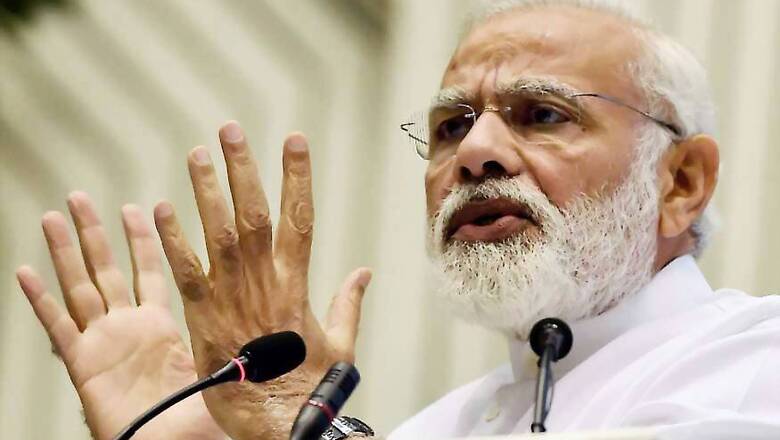
views
In an epoch-defining moment in Indian foreign policy, Prime Minister Narendra Modi would be the first Indian Head of the Government to visit Israel. In his two-day visit starting July 5, the PM will visit Tel Aviv and Jerusalem, during the course of which India and Israel are slated to sign agreements on defence, agriculture, water conservation and innovation/start-ups.
CNN-News18’s Sumit Pande spoke to Dr Vijay Chauthaiwale, the head of BJP's Foreign Policy Department. The microbiologist who is said to have created the ‘Madison Square’ template for Modi’s foreign trips says that UPA may have kept India’s relationship with Israel under the radar due to vote bank politics.
PM Modi would be the first head of the government to visit Israel. This comes almost 25 years after India established diplomatic ties with Israel. Do you think BJP’s ascension to power has expedited this transformation in ties between the two countries?
VC: I think, yes. But the ties improved even during Vajpayee era when Areal Sheron became the first Israeli Prime Minister to visit India. We as a party were always vocal about Israel. We were always supportive of the cause of Israel. But may be the UPA for some reasons or vote bank politics tried to keep it under the radar. We are not shy about it.
It does not mean we do not value our relationship with the Arab countries, but we give equal weight-age to Israeli partnership. We have had close ties with Israel in many areas, including defence.
It was not visible earlier though.
VC: It was not visible and now we need to take it to the next level. By next level, I mean to say that it has to be taken to business to business and people to people level.
In the process are we also de-hyphenating our relations with Palestine?
VC: Yes, that is correct. We have always supported the cause of Palestine, but a partnership with Israel has many dimensions. So every time when we link the two, it impedes our attempts to take our ties with Israel to the next level. At the same time, we value our ties with Palestine. Palestinian leader Mahmoud Abbas was recently in New Delhi.
Does it affect our relations in the Arab nations?
VC: I don’t think so. In the last three years, Prime Minister Modi has visited nearly all major Arab countries. Both Saudi Arabia and Iran gave their highest civilian awards to our Prime Minister. The UAE Crown Prince was the chief guest at our Republic Day function this year.
India and Israel, it seems, are collaborating extensively in the defence sector?
VC: I am not privy to any decisions being taken in government to government interactions. But yes, a few days back I did read a media report about some 600 million dollar deal to co-produce Barak missiles.
Do you see our growing relationship as a factor in dealing with India’s immediate neighbours — Pakistan and China?
VC: Well, there is always a web of interactions that take place and there is no one to one correlation; or one to one diplomacy. But beyond that, I do not want to comment on it.
Would the Prime Minister be interacting with the Indian diaspora during his Israel visit?
VC: There is a convention being planned for which registrations have are already open. This would be held in Tel Aviv on July 5. Prime Minister will address the Indian diaspora after a cultural program.
There are about 80-90 thousand Jews who have migrated from India since Independence from areas around Mumbai, Cochin and recently from the North East. Some of these communities have preserved their cultural moorings. For example, some of the Jews from Mumbai speak Marathi and celebrate Ganesh Utsav.
Then there are 8,000-10,000 nurses from Kerala who work for elderly care. About 500 students from India study in Israeli universities. And about 30-40 Gujarati families in trading in diamonds live in Israel.

















Comments
0 comment